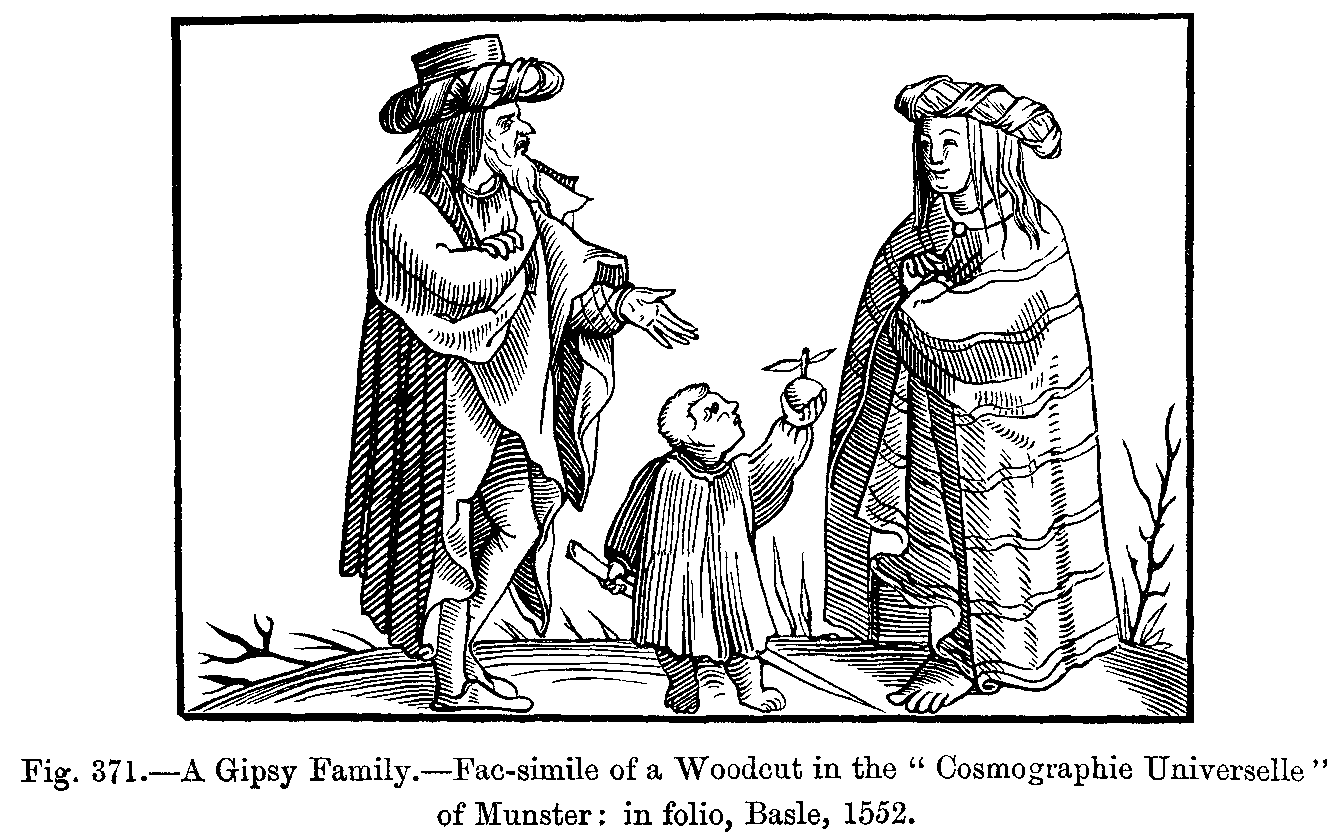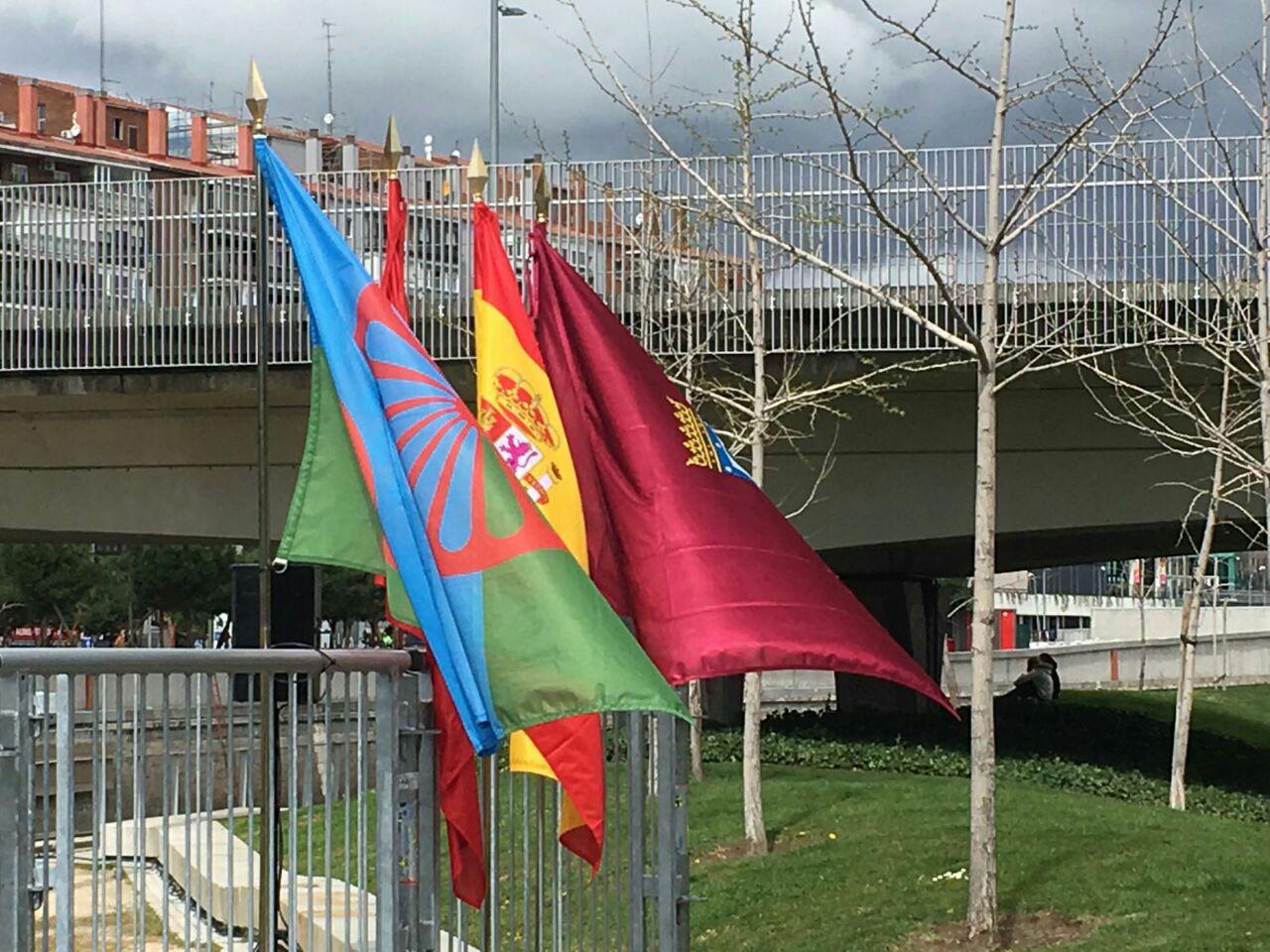|
The Zincali
''The Zincali: An Account of the Gypsies of Spain'' is a book written by George Borrow. The first edition was published in 1841. Nine editions were published until 1901 at which time the last (definitive) edition was published, but the book is still in print. In this work George Borrow writes about the living and culture of the Romani people especially in Spain. At the end of the book, a dictionary of the Romani language can be found. A lot of anecdotes of Borrow's encounter with this people are to be found in this book, which shows that he spoke the Romani language fluently and was even considered as one of them. In contrast to most modern works about the Romani people also the dark side of the Romani culture is discussed, like fraud and robbery, which were apparently common with the Romani people in the author's lifetime. Nevertheless, George Borrow George Henry Borrow (5 July 1803 – 26 July 1881) was an English writer of novels and of travel based on personal experiences in ... [...More Info...] [...Related Items...] OR: [Wikipedia] [Google] [Baidu] |
George Borrow
George Henry Borrow (5 July 1803 – 26 July 1881) was an English writer of novels and of travel based on personal experiences in Europe. His travels gave him a close affinity with the Romani people of Europe, who figure strongly in his work. His best-known books are '' The Bible in Spain'' and the novels '' Lavengro'' and '' The Romany Rye'', set in his time with the English ''Romanichal'' (Gypsies). Early life Borrow was born at East Dereham, Norfolk, the son of Thomas Borrow (1758–1824), an army recruiting officer, and Ann Perfrement (1772–1858), a farmer's daughter, . His father, a lieutenant with the West Norfolk Militia, was quartered at the prisoner-of-war camp at Norman Cross from July 1811 to April 1813, and George spent his ninth and tenth years in the barracks there. He was educated at the Royal High School of Edinburgh and Norwich Grammar School. Borrow studied law, but languages and literature became his main interests. In 1825, he began his first major Europe ... [...More Info...] [...Related Items...] OR: [Wikipedia] [Google] [Baidu] |
Romani People
The Romani (also spelled Romany or Rromani , ), colloquially known as the Roma, are an Indo-Aryan ethnic group, traditionally nomadic itinerants. They live in Europe and Anatolia, and have diaspora populations located worldwide, with significant concentrations in the Americas. In the English language, the Romani people are widely known by the exonym Gypsies (or Gipsies), which is considered pejorative by many Romani people due to its connotations of illegality and irregularity as well as its historical use as a racial slur. For versions (some of which are cognates) of the word in many other languages (e.g., , , it, zingaro, , and ) this perception is either very small or non-existent. At the first World Romani Congress in 1971, its attendees unanimously voted to reject the use of all exonyms for the Romani people, including ''Gypsy'', due to their aforementioned negative and stereotypical connotations. Linguistic and genetic evidence suggests that the Roma originated ... [...More Info...] [...Related Items...] OR: [Wikipedia] [Google] [Baidu] |
Spain
, image_flag = Bandera de España.svg , image_coat = Escudo de España (mazonado).svg , national_motto = ''Plus ultra'' (Latin)(English: "Further Beyond") , national_anthem = (English: "Royal March") , image_map = , map_caption = , image_map2 = , capital = Madrid , coordinates = , largest_city = Madrid , languages_type = Official language , languages = Spanish language, Spanish , ethnic_groups = , ethnic_groups_year = , ethnic_groups_ref = , religion = , religion_ref = , religion_year = 2020 , demonym = , government_type = Unitary state, Unitary Parliamentary system, parliamentary constitutional monarchy , leader_title1 = Monarchy of Spain, Monarch , leader_name1 = Felipe VI , leader_title2 = Prime Minister of Spain ... [...More Info...] [...Related Items...] OR: [Wikipedia] [Google] [Baidu] |
Romani Language
Romani (; also Romany, Romanes , Roma; rom, rromani ćhib, links=no) is an Indo-Aryan macrolanguage of the Romani communities. According to '' Ethnologue'', seven varieties of Romani are divergent enough to be considered languages of their own. The largest of these are Vlax Romani (about 500,000 speakers), Balkan Romani (600,000), and Sinte Romani (300,000). Some Romani communities speak mixed languages based on the surrounding language with retained Romani-derived vocabulary – these are known by linguists as Para-Romani varieties, rather than dialects of the Romani language itself. The differences between the various varieties can be as large as, for example, the differences between the Slavic languages. Name Speakers of the Romani language usually refer to the language as ' "the Romani language" or '' (adverb)'' "in a Rom way". This derives from the Romani word ', meaning either "a member of the (Romani) group" or "husband". This is also the origin of the term "Roma ... [...More Info...] [...Related Items...] OR: [Wikipedia] [Google] [Baidu] |
Romani Culture
The Romani people are a distinct ethnic and cultural group of peoples living all across the globe, who share a family of languages and sometimes a traditional nomadic mode of life. Though their exact origins are unclear, central India is a notable point of origin. Their language shares a common origin with, and is similar to, modern-day Gujarati and Rajasthani, borrowing loan words from other languages as they migrated from India. In Europe, even though their culture has been victimized by other cultures, they have still found a way to maintain their heritage and society. Romani culture is influenced by Indian culture and European culture. Origins Linguistic and phonological research has traced the Roma people's origin to places in the Indian subcontinent, specifically linking Proto-Romani groups to Central India. Many report in extracts from popular literature that Romani emerged from the North-west regions of India, rather than from Central India. Features of phonological ... [...More Info...] [...Related Items...] OR: [Wikipedia] [Google] [Baidu] |
Romani Literature
The Romani people are a distinct ethnic and cultural group of peoples living all across the globe, who share a family of languages and sometimes a traditional nomadic mode of life. Though their exact origins are unclear, central India is a notable point of origin. Their language shares a common origin with, and is similar to, modern-day Gujarati and Rajasthani, borrowing loan words from other languages as they migrated from India. In Europe, even though their culture has been victimized by other cultures, they have still found a way to maintain their heritage and society. Romani culture is influenced by Indian culture and European culture. Origins Linguistic and phonological research has traced the Roma people's origin to places in the Indian subcontinent, specifically linking Proto-Romani groups to Central India. Many report in extracts from popular literature that Romani emerged from the North-west regions of India, rather than from Central India. Features of phonological ... [...More Info...] [...Related Items...] OR: [Wikipedia] [Google] [Baidu] |
Romani In Spain
The Romani in Spain, generally known by the exonym () or the endonym ''Calé'', belong to the Iberian Cale Romani subgroup, with smaller populations in Portugal (known as ) and in Southern France. Their sense of identity and cohesion stems from their shared value system, expressed among the as the ('Gypsy laws'). Traditionally, they maintain their social circles strictly within their patrigroups, as interaction between patrigroups increases the risk of feuding, which may result in fatalities. The emergence of Pentecostalism has impacted this practice, as the lifestyle of Pentecostal ''gitanos'' involves frequent contact with ''gitanos'' from outside their own patrigroups during church services and meetings. Data on ethnicity are not collected in Spain, although the public pollster CIS estimated in 2007 that the number of ''gitanos'' present in Spain is probably around one million. Name The term ''gitano'' evolved from the word ''egiptano'' ("Egyptian"), which was the ... [...More Info...] [...Related Items...] OR: [Wikipedia] [Google] [Baidu] |

